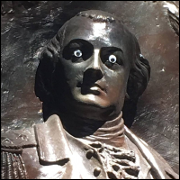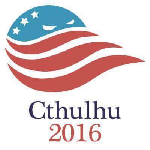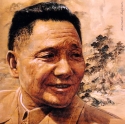|
QuoProQuid posted:I'm really looking forward to see who goons vote for between Grover "probable rapist" Cleveland and James "nakedly corrupt" Blaine. MAW MAW WHERES MY PAW
|
|
|
|

|
| # ? May 9, 2024 23:58 |
|
Corek posted:MAW MAW WHERES MY PAW GONE TO THE WHITE HOUSE, HA, HA, HA
|
|
|
|
I feel like the worst part of this thread for QuoProQuid is going to be researching dozens of obscure Prohibition Party candidates who no goon will ever vote for anyway.
|
|
|
|
QuoProQuid posted:GONE TO THE WHITE HOUSE, HA, HA, HA Proto-Groverhaus
|
|
|
|
Pakled posted:I feel like the worst part of this thread for QuoProQuid is going to be researching dozens of obscure Prohibition Party candidates who no goon will ever vote for anyway. what if one of them is a secret adams though
|
|
|
|
In 1880 the Prohibition Party was the only party not to support Chinese Exclusion. ^ Also, the VP candidate's middle name was Adams. Corek has issued a correction as of 00:57 on Mar 5, 2016 |
|
|
|
Wikipedia posted:The 19th Amendment, which gave women the right to vote, did not pass until 1920. Yet, in 1869, the Prohibition Party became the first to accept women as party members[4] and even gave women who attended its first national convention full delegate rights. This was the first time any party had afforded women this right.[5] These women “spoke from the floor, entered debates, introduced resolutions, and voted on the party platform.”[6] Women’s suffrage appeared on the Prohibition Party platform in 1872. In 1892, the platform included the idea of equal pay for equal work. By contrast, women’s suffrage did not appear on the platform of either the Democratic or Republican platform until 1916. The Woman’s Christian Temperance Union (WCTU), which later became instrumental in the passage of the 18th Amendment, started out as the women’s branch of the Prohibition Party. It went on to become more influential than the party itself. It was, “the largest women’s organization of the nineteenth century and the heart of the organized demand for prohibition and women’s rights as well as for prison and labor reform, for public support for neglected children, and for peace – in short for a transformed society dedicated to social justice."[5]
|
|
|
|
The Prohibition Party's got my vote! They're still around, after all!
|
|
|
|
Someone should edit Kelly's "Whiskey Sours" so Kelly in the corner is saying this is a bad thing and to vote Prohibition.
|
|
|
|
UberJew posted:depends on if op decides to throw all the plausible nominees for the republican party that election in having democrats/republican/constitutional union primaries as a prelude could be fun
|
|
|
|
WTF how could I forget Garfield as a example. Actually who are we kidding, this is where Mallard Filmore dude got the idea
|
|
|
|
Nebakenezzer posted:WTF how could I forget Garfield as a example. also Calvin and Hobbes, though they were never politicians
|
|
|
|
Corek posted:MAW MAW WHERES MY PAW QuoProQuid posted:GONE TO THE WHITE HOUSE, HA, HA, HA gently caress yeah Raskolnikov38 posted:having democrats/republican/constitutional union primaries as a prelude could be fun 1860 might be worth dwelling on, good thought
|
|
|
|
Slate's Whistlestop covers several elections after 1840, and they are still adding more: http://www.slate.com/articles/podcasts/whistlestop.html. Incidentally, I recently reread Favell Lee Mortimer's "The Clumsiest People in Europe". It's a global view of a Victorian woman who never left the house writing about different countries and people in the 1850s. And while she is generally really nasty and mean, she still recognizes slavery in the US to be utterly horrible. I found it interesting because it shows that the only part of the civilized world in the middle of the 19th century where slavery was still considered acceptable was really the USA. Which makes slavery the climate change denial of its day, I guess.
|
|
|
|
QuoProQuid posted:I did consider keeping the Liberty Party in the next few elections, but in the next few elections their support will plummet to a fraction of a fraction of a fraction of a percent. I did like the suggestion, made early in the thread, that whoever won an election here would be a candidate in the next election, no matter what the actual history. We might still be electing John Adams. Even if you added a clause saying a candidate wouldn't stand after their historical death, that's still about eight terms.
|
|
|
|
Oh god, eight terms of Adams might have caused the nation to collapse under the weight of his many titles.
|
|
|
|
Vavrek posted:I did like the suggestion, made early in the thread, that whoever won an election here would be a candidate in the next election, no matter what the actual history. I think it's more fun, interesting and encourages more variety to use real history for candidates.
|
|
|
|
karmicknight posted:Oh god, eight terms of Adams might have caused the nation to collapse under the weight of his many titles. You think after 3 terms and a vice presidency he didnt somehow manage to work those titles into law? And maybe add a few new ones.
|
|
|
|
SpRahl posted:You think after 3 terms and a vice presidency he didnt somehow manage to work those titles into law? And maybe add a few new ones. I think the better question is: How big is the Temple of the Divine Adams?
|
|
|
|
The gooniverse's Mount Rushmore will be four Adams.
|
|
|
|
I think it'd get away from the thread if we wrote a goon political history from 1776. For one, the civil war would have happened immediately. For another, it would have rapidly become a less structured let's play, where the USA somehow annexes New Brunswick and wins the war of 1812 as a opener, and Jackson ends up resettling Quebec with Irishmen or something, with all the Acadians condemned to Louisiana, leading to Western States speaking french and siding with Mexico, etc etc
|
|
|
|
Nebakenezzer posted:I think it'd get away from the thread if we wrote a goon political history from 1776. For one, the civil war would have happened immediately. For another, it would have rapidly become a less structured let's play, where the USA somehow annexes New Brunswick and wins the war of 1812 as a opener, and Jackson ends up resettling Quebec with Irishmen or something, with all the Acadians condemned to Louisiana, leading to Western States speaking french and siding with Mexico, etc etc I disagree. I think it would be a wonderful ending to this thread if we wrapped all the elections into a cohesive narrative.
|
|
|
|
Lycus posted:I think it's more fun, interesting and encourages more variety to use real history for candidates. Yeah I like this as well - you see more stuff which is part of the point.
|
|
|
|
Mycroft Holmes posted:I disagree. I think it would be a wonderful ending to this thread if we wrapped all the elections into a cohesive narrative. here you go: 
|
|
|
|
i don't think it's possible to form a cohesive narrative out of our votes unless you pretend we're also representative of the american populace from 1788 on. in which case it's basically alt-history where everybody always agreed with us, which is fine and all but then it's not really a history thread any more. qpq would've had to be finding reformists and interesting historical figures who kinda agree with us to run instead of the historical characters, and changing their beliefs to fit into our modalities, for example separating the social reform movements we agree with (abolition, utopian socialism, whatever) with the ones we don't (i.e. temperance/prohibition, shipping freed slaves to africa) if you try to tie our answers in with history then the actual human beings of the time would be like 'what the gently caress are these results' and either have civil wars or write a new constitution where we don't get to vote for them any more oystertoadfish has issued a correction as of 23:28 on Mar 5, 2016 |
|
|
|
My only minor suggestion for QuoProQuid is to indicate people who became president via succession in the list in the OP, like Ellmaker.
Lycus has issued a correction as of 23:31 on Mar 5, 2016 |
|
|
|
Thank you all for voting. After the disastrous presidency of James Birney and the party’s attempt to appoint his the President’s relative, the Liberty Party has collapsed into itself. Their nominee, Gerrit Smith, has finished only votes ahead of the Democrats, the widely despised secessionists. With a large popular mandate behind him, Martin Van Buren, the Little Magician, has been elected President of these United States. We can only hope that he and he some success rebuilding our broken nation. Charles Francis Adams has been selected as the Vice President. Though Adams will be forced to delay the release of his magnum opus, he has sworn to do all he can to follow in his father and grandfather’s footsteps. RESULTS BREAKDOWN: Most Popular Ticket: Martin Van Buren / Charles Francis Adams, Sr. (Free Soil) - 62 votes (61.4%) Zachary Taylor / Millard Fillmore (Whig) - 26 votes (25.7%) Gerrit Smith / Charles C. Foote (Liberty) - 9 votes (8.9%) Lewis Cass / William Orlando Butler - 4 votes (4%)
|
|
|
|
ELECTION OF 1852 Click here to vote in the Election of 1852! Click here to vote in the Election of 1852!   Background: On March 5, 1849, as Taylor made his slow trek towards Washington, President Polk wrote in his diary, “General Taylor is, I have no doubt, a well-meaning old man. He is, however, uneducated, exceedingly ignorant of public affairs, and I should judge of very ordinary capacity. He will be in the hands of others, and must rely wholly upon his cabinet to administer the government.” With friends, Polk worried incessantly about his successor. He feared, as any President does, that his opponent would undo the hard-won progress that he had made over the last four years: the annexation of Texas and Oregon, peaceful relations with the British, lower tariff rates, and a cooling of tensions over slavery. Unlike other Presidents, Polk feared that Taylor would be wholly inadequate. That the nation would not just be worse off, but that it would be torn asunder. For the first few weeks of his presidency, Polk’s fears seemed to be misplaced. Taylor delivered a short, but innocuous address. He showed deference towards Congress. And he helped arrange dignified state funerals for Polk and former First Lady Dolly Madison. The only issues on the horizon were expected requests for statehood from California and New Mexico, one of whom would be expected to be a slave state and the other a free state. However, when Tyler addressed the Congress in December 1849 on the issue, he gave no reference to the slave-status of the prospective states. Instead, he urged Congress to admit the two as soon as possible. Over the next few months, relations between Congress and the White House deteriorated. As Southern interests demanded with increasing hostility that the free-slave state balance be maintained, Tyler grew hostile and demanded to know why the Democrats, who had advocated popular sovereignty in the last election, were now advocating federal interference in the constitutions of two prospective states. Tyler was interrupted in his office and faced harassment in the street by wealthy landowners. As abolitionists rallied to abolish the slave market operating in the District of Columbia, tensions between North and South further deteriorated and secession was discussed in public. As Henry Clay and Stephen Douglas rushed to find some compromise, Taylor’s position hardened and he announced that he would push for slavery to be prohibited in the entire Mexican cession. In Spring, Taylor met personally with a group of Southern representatives who threatened secession if their interests were not satisfied. Taylor responded by promising to hang them all and personally lead an army into the South. It seemed the United States would descend into war. And then, several weeks later, Taylor died. Rumors swirled, but tensions cooled as the much more compromising Millard Fillmore took power and immediately supported Clay and Douglas’s Compromise, dubbed the Compromise of 1850. A longitme ally of Henry Clay, Fillmore accepted Clay’s argument that the bill was necessary to keep the Union intact. Though not perfect, and in many ways morally unsatisfying, Fillmore considered the bill a necessary evil. Outside the District of Columbia, the reaction to the Compromise was much more negative. Northern abolitionists were enraged by the Fugitive Slave Law and threatened nullification to stop its enforcement. Southerners were outraged by new restrictions on slavery in the District of Columbia and in California. Fillmore, desperate to appease everyone, tried to enforce it stringently to avoid further escalation. In 1851, after a Maryland man was killed by his runaway slave, Fillmore arrested over forty people - both white and black - and charged them with treason, a capital offense, for violating the Fugitive Slave Law. When Fillmore tried to enforce the law in his native New York, federal officers were greeted by bands of armed abolitionists and forced to flee. In the South, violence increased and a growing chorus of voices demanded their property be returned or they might leave the Union. As the Election Day approached, the Democrats nominated Franklin Pierce, a Mexican-American war hero whose position on slavery was vague enough that it did not cause fistfights between Northerners and Southerners within the party. The Democrats also hired Nathaniel Hawthorne, the author of The Scarlet Letter, to write propaganda in preparation for the election. The Whigs, hoping to outdo their opponents, nominated Winfield Scott, Pierce’s commander during the Mexican-American War. Though ordered by his party to remain silent on slavery and to run a Taylor-esque campaign, Scott vocally endorsed a pro-Compromise platform that alienated Northerners and made Southerners suspicious. The Whigs would spend the next few months attempting to censor their own candidate as rifts over slavery tore the party down the middle. Meanwhile, President Fillmore has sent out orders demanding that forts across the South be reinforced and fully supplied, just in case… DEMOCRATIC PARTY NOMINEES:  Presidential Nominee: Franklin Pierce
 Vice Presidential Nominee: William Rufus DeVane King
WHIG PARTY NOMINEES:  Presidential Nominee: Winfield Scott
 Vice Presidential Nominee: William Alexander Graham
FREE SOIL PARTY NOMINEES:  Presidential Nominee: John Parker Hale
 Vice Presidential Nominee: George Washington Julian
UNION PARTY NOMINEES:  Presidential Nominee: Daniel Webster
 Vice Presidential Nominee: Charles Jones Jenkins
NATIVE AMERICAN PARTY NOMINEES:  Presidential Nominee: Jacob Broom
 Vice Presidential Nominee: Reynell Coates
SOUTHERN RIGHTS NOMINEES:  Presidential Nominee: George McIntosh Troup
 Vice Presidential Nominee: John Anthony Quitman
|
|
|
|
Oh god I'm so torn between TROUP *click* and voting for the very last zombie Federalist.
|
|
|
|
QuoProQuid posted:In Spring, Taylor met personally with a group of Southern representatives who threatened secession if their interests were not satisfied. Taylor responded by promising to hang them all and personally lead an army into the South. Rip in peace Zack Taylor, a true American hero  Anyway, I'm voting for Webster because he's dead and that inherently makes him a better politician than most of these fucks.
|
|
|
|
TROUP! *click*
|
|
|
|
Hale/Julian '52.
|
|
|
|
|
I was really excited for a moment when I read the name "Native American Party" but then incredibly dismayed when I read the actual description.
|
|
|
|
I mean i guess we should vote free soil, but we've already abolished slavery like 6 times. IDK, is there another fun party to vote for? I guess the dead guy.
|
|
|
|
Kind of tempted to vote Southern Rights just to have an insanely ahistorical swing to right instead of left this time.
|
|
|
|
MMM Whatchya Say posted:I mean i guess we should vote free soil, but we've already abolished slavery like 6 times. IDK, is there another fun party to vote for? I guess the dead guy. We should have voted for Zach "hang the South" Taylor last election. Dead dude is definitely the comedy option though. This and the elections after it probably are not ones you want to consider for getting away from slavery politics since it seems everyone is either making it a central issue of their campaign or trying to be as blank a state as possible and have little to no actual platform that could potentially piss one side off. QuoProQuid posted:Presidential Nominee: Daniel Webster His positions are irrelevant, because he is dead.
|
|
|
|
Very disappointed to find that William Rufus Devane King is not related to Rufus King or William Devane.
|
|
|
|
UrbicaMortis posted:Kind of tempted to vote Southern Rights just to have an insanely ahistorical swing to right instead of left this time. Yeah, I mean, why not? Also Quitman is kind of a funny name? It would still probably start a civil war for what it's worth. Southern Rights
|
|
|
|
Dumb political question(s): the national bank. It seems like Jackson's opposition to it is one of his major policy victories, because people are still wittering on about it decades later. Was it a giveaway for the 18th century .01%? Because it sounded sorta like a very sensible infrastructure improvement project and a bunch of people flipped out because "STATES RIGHTS" or some such. Also, did the bank's closure cause all sorts of economic fuckery, or was this America being all bubblicious without any external regulation?
|
|
|
|

|
| # ? May 9, 2024 23:58 |
|
Lycus posted:My only minor suggestion for QuoProQuid is to indicate people who became president via succession in the list in the OP, like Ellmaker. Done. If there are any other recommendations for the OP, let me know. Takanago posted:I was really excited for a moment when I read the name "Native American Party" but then incredibly dismayed when I read the actual description. Well, there is one candidate this cycle with ties to the Creek Indians. I wouldn't actually read his platform, but I'm sure he's fine. SpRahl posted:Also any samples of Reynell Coates poetry? Poetry on the Catholic problem sound like they'd be hilarious but then again probably not. "The Drunkard's Child" is supposed to be one of his anti-Catholic pieces, but I haven't been able to find it anywhere. You can, however, read some of his short stories and short works of prose in Graham's Magazine, Volumes 20-21. He was published alongside Edgar Allen Poe.
|
|
|


































